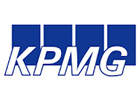An Interim can act full time or part time in your business depending on what you want and what your situation is. Les has completed contracts as short as 3 days and as long as 4 years duration. Typically, the duration of interim contracts is 6 to 12 months. Often, an Interim will arrive to complete one exercise that then naturally leads into a follow up assignment.
The key thing an experienced Interim brings to a client company is the ability to hit the ground running. He or she will quickly give the client confidence that they will bring calm and stability and will deliver a clear action plan to get the job done whatever the task may be.
In Les’ case, over a twenty year period, in addition to core financial control and reporting, my experience has included the following:
- Business turnarounds of under-performing companies
- Rapid scale-up businesses (two grew from a standing start to £100m turnover within 10 years, a third appeared in the Sunday Times Fast Track 100 Listings for 3 years)
- Acquisitions of new businesses – from planning likely targets, negotiation and due diligence exercises all the way through to post-acquisition integrations of financial systems and business processes
- Planned and launched a new business stream for a business which grew to £5m sales and was eventually sold to it’s management in a MBO
- Disposal of companies that are no longer core to the business
- Hiving off a division of a business that was no longer core (ie selling a part of the business)
- Transferred two companies into one legal entity and re-financed the new entity
- Preparation of a business for flotation
- Fundraising and re-financing of banking arrangements
- Hands-on cashflow management and detailed forecasting systems
- Transitioning from buying in products (pure distribution) to manufacturing them and distribution
- Relocating manufacturing operations to another site (in the UK and internationally)
- Constructing and opening a fully owned manufacturing plant on mainland China
- Introduction of Lean 6 Sigma methodologies into a manufacturing operation
- Closing down manufacturing and outsourcing it to third parties
- Introduction of sophisticated ‘Margin Management’ performance reporting systems highlighting the margin achieved by division, customer, product, territory etc
- Working alongside Sales teams to devise improved sales targets, pricing policies, discount structures, rebate schemes and sales commission schemes
- Working alongside Operations teams to compress the supply chain activities and to fully integrate and align the activities of supplier partners
- Working alongside Manufacturing teams to validate standard costs and improve manufacturing efficiencies
- Working alongside IT teams to implement various IT solutions and in particular ERP systems (Microsoft Dynamics and Netsuite)
- Working with Buying Teams to fully coordinate sales forecasts, with current stockholdings with purchase ordering
- Acted as Operations Director for a 24/5 warehousing and distribution operation
- Acted as Key Account Manager to a major DIY chain following the introduction of a new service to the DIY Retailer
- Develop global supply chain forecasting and management activities in a 30,000 SKU business
- Stock turnover reporting and Days stock reporting by SKU
- Fully re-engineering field service activities in orderto simultaneously improve customer service levels and reduce costs
- Re-engineer activities of a sizeable credit control team which operated in the construction sector
- Structured Change Management programme within the Contracting Division of Thames Water
- Structured Change Management programme within Yodel (merging two businesses into one ie Home Delivery Network and DHL UK Parcels)
- Structured Change Management programme with Aliaxis UK (creation off a Shared Service Centre for 6 subsidiaries of Aliaxis SA covering Finance, Payroll, HR, IT and Procurement)
- Acted as ‘1st Finance Director in’ and professionalised the Finance Department
- Carried out an in-depth investigation for a PE backed business where a subsidiary unexpectedly started reporting losses
- Carried out a forensic investigation following a poor implementation of a new IT system which resulted in numbers that could not be trusted
- Provided coaching services for Financial Controllers and Finance Directors who were either inexperienced, or who did not fully understand the business, or who did not have the people skills to fully engage with the business























